The Plot is more than just the new thriller from Jean Hanff Korelitz. As Stephen King says, it is “one of the best novels I’ve ever read about writers and writing.”
I totally agree with him.
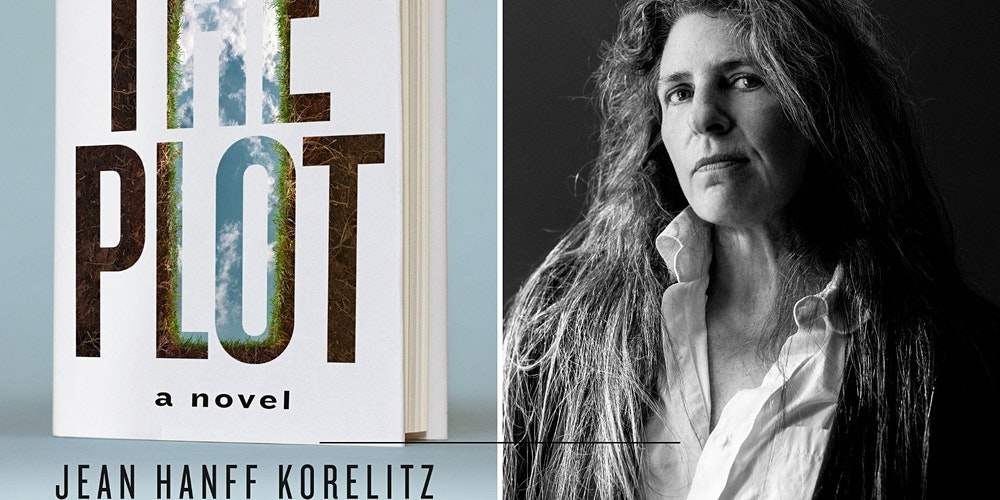
Enjoyable Snarkiness
Like Korelitz’s last novel, You Should Have Known, this one starts slowly. But also like her last novel (which became HBO TV series The Undoing) the beginning is notable for its laser-beam insights — read: enjoyable snarkiness — into and about the worlds of its characters. You Should Have Known dug into the lives of Manhattan’s one per cent-er families and their private schools. The Plot delves into the mores and psyches of writers and writing.
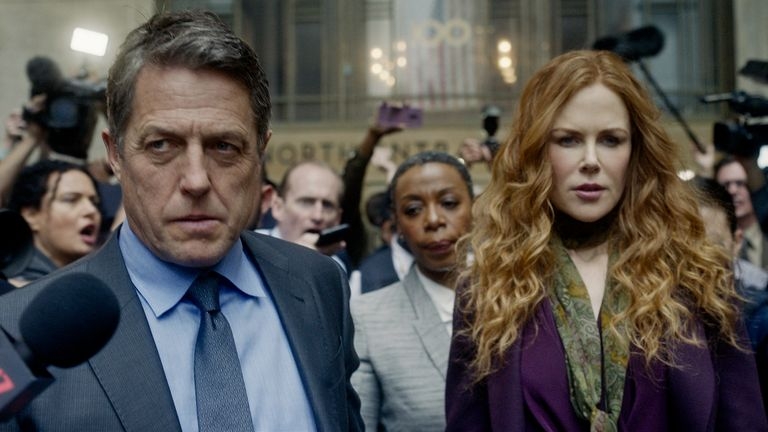
The protagonist of the novel is Jacob Finch Bonner aka Jake. The author of one literary bestseller, he cannot produce another masterpiece. He is in a major slump known to most of us as writer’s block (see below.) Hence, he finds himself teaching creative writing at Ripley, a third-rate college-type facility where he meets a supremely self-assured student.
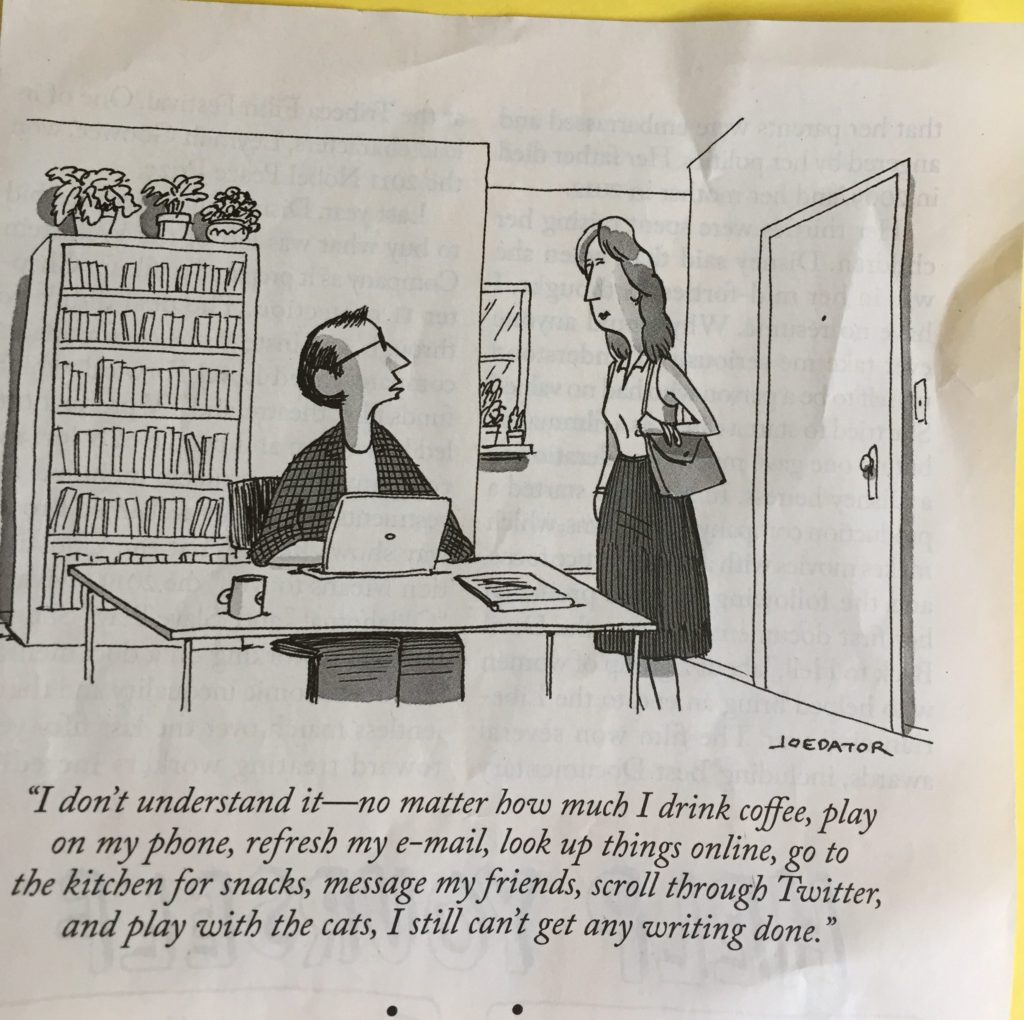
Evan Parker, the student, is convinced he has a sure-fire plot that will get him on the bestseller lists, on Oprah, and with offers from A-list movie directors. Eventually, when he shares the plot in a one-on-one evaluation meeting, Jake has to agree that Evan is right.
As his career goes steadily downhill, Jake wonders what has become of Evan and his sure-fire bestseller. He subsequently discovers that Evan has died of an overdose. What’s more, apparently no-one is his family is still alive, nor is the family home in the possession of any family member, near or distant.
So, you guessed it:
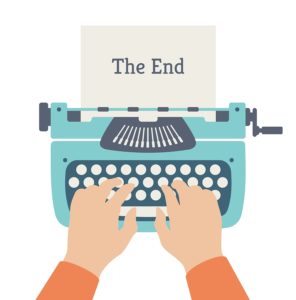 Jake uses Evan’s plot (about a toxic mother-daughter relationship which ends in a jaw-dropping revelation) to write his new book. Titled Crib, it does indeed catapult Jake to the top of the bestseller lists. And, then the fun starts because it becomes clear that someone is on to Jake. He/She begins sending him anonymous emails calling him a thief.
Jake uses Evan’s plot (about a toxic mother-daughter relationship which ends in a jaw-dropping revelation) to write his new book. Titled Crib, it does indeed catapult Jake to the top of the bestseller lists. And, then the fun starts because it becomes clear that someone is on to Jake. He/She begins sending him anonymous emails calling him a thief.
Best Novel About Writers And Writing
The New York Times described The Plot as “a Russian nesting doll of a novel.” And indeed, the novel is a multi-layered treasure. It might also be the exception that proves the rule.
Which is to say: Yes, The Plot is a slow-burn for a thriller — but you don’t always have to grab a reader in the first ten pages. On the other hand, if you are an author/writer I think you will definitely be grabbed from Page 1.
Gems in The Plot
For one, The Plot abounds with gems which purportedly express Jake’s slightly jaded views of writers and writing. It is not a stretch, however, to imagine that Jake’s views may reflect those of Ms. Korelitz, herself.
“[F]irst, he had to deliver on that Ripley fantasy that they were all, “students” and “teachers” alike, colleagues-in-art, each with a unique voice and a singular story to tell with it, and each equally deserving of being called that magical thing: a writer.”
Or take this very accurate observation about the publishing world today. As Jake tells his class on their first day:
“Today, editors want a book that can go straight into production, or as close to that as possible, so if you think Maxwell Perkins is waiting for your manuscript-in-progress to arrive on his desk, so he can roll up his sleeves and transform it into The Great Gatsby, that hasn’t been true for a long time.” He saw, to his sadness but not his surprise, that the name “Maxwell Perkins” was not familiar to them.
Plagiarism Or Theft?
In the novel, Jake is careful not to lift a single line from the only chapter he has read of Evan’s work- in -progress. And, eventually he assures himself that Evan never produced a manuscript. So, he is definitely not a plagiarist.
But, the serious question underlying The Plot dances around the concept of intellectual property: can an author steal another author’s plot or story? And, what if another author’s idea is going unused? Or the corollary to that question: Is there even any such a thing as an original plot or story? This is the way Jake thinks his agent and editor and his readers might view his use of Evan’s idea:
Even if they’d known Crib’s comprehensive origin story, they’d probably still be in his corner! After all, people who worked with writers were fully aware of the myriad and frequently bizarre ways in which a work of fiction can take root in an author’s imagination: fragments of overheard conversations, repurposed bits of mythology, Craigslist confessions, rumors at the high school reunion.
Whose Plot Is It, Anyway?
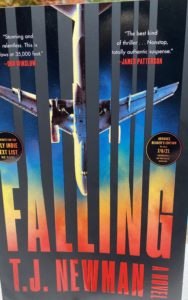 And, it happens more often than most of us realize. Novels with similar-sounding plots or storylines are published within the same timeframes — and rarely does anyone get accused of story theft.
And, it happens more often than most of us realize. Novels with similar-sounding plots or storylines are published within the same timeframes — and rarely does anyone get accused of story theft.
For example, this summer two thrillers, Falling, and The Hostage are due to be published within a couple of weeks of each other.
Falling is by debut author, T.J.Newman. It tells the story of a pilot who is given choice: Crash the plane — or your wife and children will be killed by terrorists who have already taken them hostage on the ground.
 The Hostage is by veteran British thriller writer Clare Mackintosh. It tells the story of a flight attendant who is ordered to help terrorists on board her flight — otherwise her daughter Sophia will die.
The Hostage is by veteran British thriller writer Clare Mackintosh. It tells the story of a flight attendant who is ordered to help terrorists on board her flight — otherwise her daughter Sophia will die.
And, just in case you’re thinking, ‘Wow, that’s some coincidence,’ both of those plots are distinctly similar to a 1994 Keanu Reeves movie, Speed. The antagonist in that movie says he has rigged a bomb on a bus full of passengers. The bomb will detonate if the bus speed falls below 50mph before the antagonist gets his multi-million dollar ransom.
Superb Plot
So, is there such a thing as an original plot? You could mull that thought while reading Korelitz’s novel. Ultimately, however, The Plot, is simply a helluva good read. It’s a superb thriller which interweaves excerpts from Jake’s sure-fire “bestseller” (as a book within a book) with Jake’s quest to find the antagonist who is threatening to reveal to the world that Jake is a literary thief.
The final revelations leave you agog, and the ending will leave you open-mouthed. I read this one in less than 24-hours.
Hi Joanna! I soooo want to read this book. The pricing for an ebook is ridiculous though 🙁 Have you ever watched The Words? It has a very similar plot as well, and is an excellent movie!!
I will watch The Words. Never saw it, but have now heard it mentioned by a couple of other people. Thanks for the recommendation,Eldon. As for e-books, agree with you on pricing.Remember when they first appeared and it was going to be great for readers because they were going to cost $9.99 and below. Wonder where that idea went? It’s not like they have an excuse because the cost of paper went up LOL
The problem is that Trad publishers don’t focus on the ebook market. In fact, their pricing strategy is designed to push readers to buy the print copy. That’s why often times both are priced the same. Which does suck for a guy like me who has left paper behind 🙁
Pricing e-books is a difficult business, I think. If I see anything below $9.99, I figure it’s self-published or maybe a temporary deal. And, not every author’s self-published novel is as good as yours are, Eldon.
I also NEVER download any novel that is free. I think an author should be “paid” for his/her work, however minimal that price might be.
I wish more readers thought like you did, Joanna. I fought valiantly against the trend toward free books for years before I gave up. In no other industry I can think of is the product given away for nothing, yet in self-publishing that seems to be the gold standard 🙁
It’s tempting to say that writers brought it on themselves, letting publishers offer their works for next to nothing, and nothing, with the promise: Oh readers will get to know — and love– your work and so will buy your next book. But, of course that wouldn’t be the whole story. I don’t know enough about what you have to sign away when you are self-published, but I know you will clue me in on that soon, Eldon!
Well, that’s the thing Joanna, when you self-publish there’s nothing to sign away. The author is in TOTAL control of everything from the quality of the book to pricing decisions. The history of free is complicated by the Amazon marketplace. Back in the good old days before the explosion of indie authors, a traditionally publisher author competed for shelf space in bookstores – and of course, no store would give a book away. That space is valuable real estate!
But with the advent of Amazon, that shelf space became digital and, comparatively speaking, less valuable. I mean, brick and mortar space is limited, but the digital shelf is near endless. With so much space up for grabs, visibility actually became harder to obtain. It’s not easy to get a book onto a bookstore shelf, but with millions of authors vying for that digital real estate, it’s even harder to be seen online.
This, of course, led to the strategy of setting a book to free to gain visibility. In the early days of Amazon those free copies actually counted as sales toward your visibility ranking and many authors gained huge followings by employing this strategy. I mean, it’s order of magnitudes easier to give something away than to sell it. Today, though, the bump you receive is greatly reduced but authors still try.
I was always loathe to give away my work, but if you’re going to compete, you can’t swim against the current forever. Part of me still believes we’re training an entire generation to expect everything for nothing, and we’ll all pay for it later. But, only time will tell.
Thank you for clarifying that, Eldon. That’s a brief but really informative analysis of what’s happened in recent years. I’ve been thinking about the price of books since you started this thread, and see a blog coming up about it in the near future.
I look forward to reading that, Joanna!!